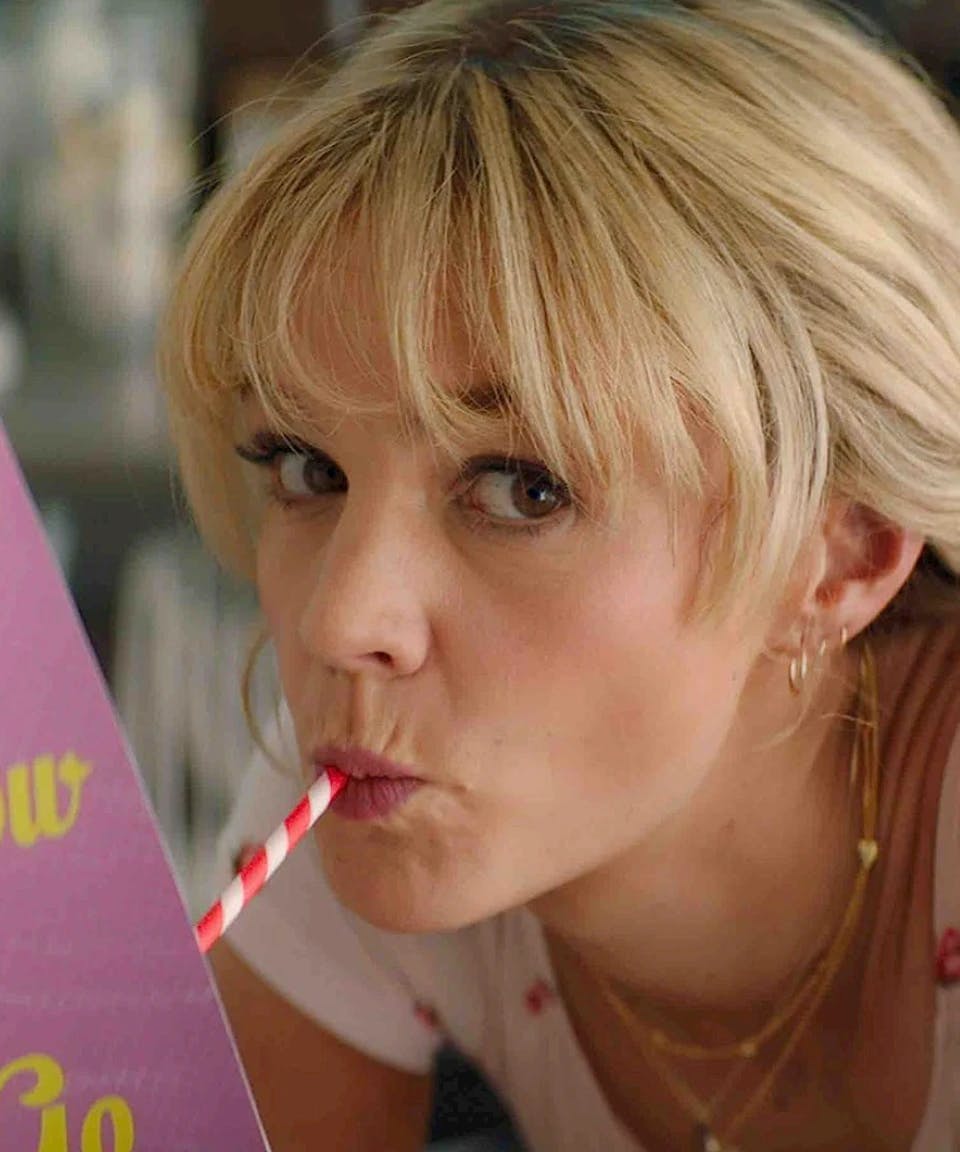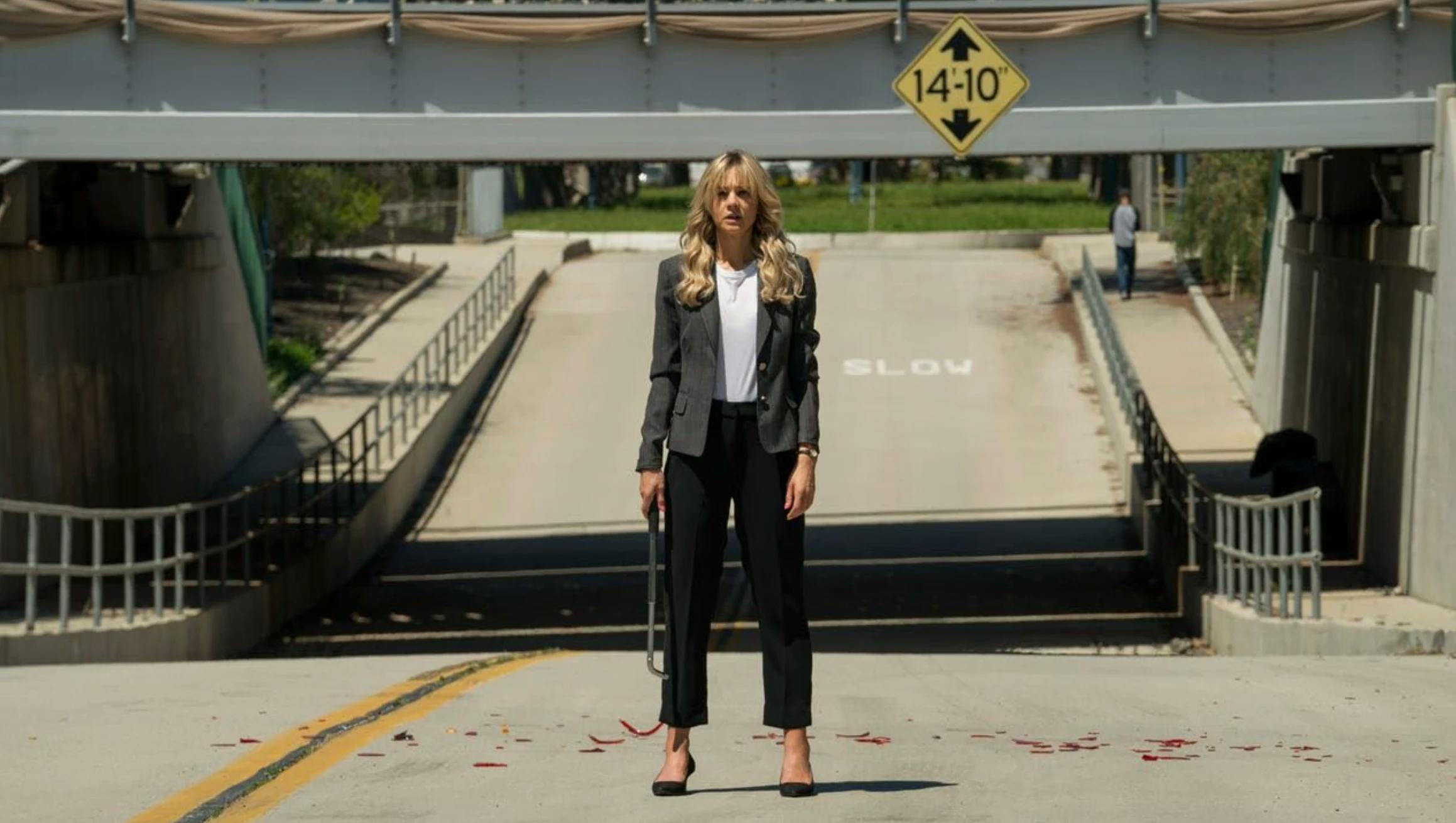13 Films That Show What Radical Feminism Gets Wrong
A strong female lead steps on screen. She’s battered and bruised, she speaks stoically about the problem at hand. She doesn’t need help and she doesn’t want a man. Sound familiar?

It’s an archetype that has grown increasingly frequent on our TV screens and, in my opinion, a tired one. I’ve found that this type of film doesn’t appeal to most of my guy friends, and honestly, it doesn’t appeal to me either. In films like this, being feminine means being weak and the only way to prove a woman’s worth is by beating a man at his own game. I agree with Emily Blunt on the subject - there’s nothing complex or exciting going on in most stories written with a “strong female lead.”
The truth is that many movies made with a “strong female lead” are designed to fit the radical feminist idea of what it means to be a strong woman. But there are some films that don’t accept those ideas at face value. Some take radical feminist ideas to their terrifying conclusion, and others illustrate the strength of true femininity. Here is a list of films through time that illustrate what radical feminism gets wrong about women.
1. Legally Blonde
When Elle (Reese Witherspoon) is dumped by her boyfriend because she’s not serious enough for him, Elle decides to follow him to law school to win him back. But when she arrives Elle realizes she has great style and a brain, and that she needs both to become a kickass lawyer. This movie is a great reminder that being feminine and girly doesn’t mean you’re stupid - and that it’s always cool to wear pink.

2. A Free Soul
Turns out, people have been asking whether radical feminism was good for women for a while - women had only had the right to vote for a decade when this film was released. Jan (Norma Shearer), the willful daughter of a defense lawyer (Lionel Barrymore), begins a relationship with the mobster her father is defending. Jan is sure that as a “modern girl” she can live however she wants without consequences, but we slowly see her life begin to unravel. Jan’s realization that propriety is about more than just social expectations still rings true today. Lionel Barrymore won a well-deserved Oscar for his performance in a climactic speech that highlights how every woman, even a liberated one, needs a protecting father.

3. Promising Young Woman
Haunted by a friend’s sexual assault and resulting death, Cassandra (Carey Mulligan) stalks the city at night for sexual predators and takes her vengeance out on them. As the premise alone suggests, this film crosses the line into horror pretty quickly. Laid out in the structure of a Greek tragedy, it’s a cautionary tale whose title is meant to have layers of irony. Cassie isn’t the hero of her own story, and her preoccupation with revenge isn’t glorified as we watch her desire for revenge consume her. The film refers to a promising young woman whose potential is wasted - who ultimately proves to be Cassie herself.

4. Woman of the Year
Katharine Hepburn and Spencer Tracy starred in many films that examine the relationships of men and women, but this film is probably my favorite. Tess (Hepburn) and Sam (Tracy) are instantly attracted to each other, even though they come from completely different worlds. She writes about the news and he writes about sports, she comes from a life of wealth and he’s a man of the people. Their romance and marriage is charming and humorous, but it asks really great questions about what it really means to be a working wife. Even when their relationship hits the rocks, Sam doesn’t want Tess to stop being a fantastic reporter - all he really wants is for her to build a life with him.

5. Age of Adaline
That’s right, this film isn’t just an excuse to let Blake Lively wear the cutest clothes from every era of history (though that would be reason enough to make the movie). Adaline Bowman (Blake Lively) miraculously has lost the ability to age, so she moves from life to life without any committed relationships. But in the end, Adaline realizes that her lack of vulnerability prevents her from really living. In a time when women are encouraged to have transitory relationships, Adaline’s journey to embracing commitment is more important than ever.

6. Gone with the Wind
Many people think this classic film is an ode to pre-Civil War life, but when I watch this film I see a battle between two types of women: the scheming, boss lady Scarlett O’Hara and the sensitive, feminine Melanie Hamilton. During moments of crisis, Scarlett assumes the mantle of leading her family. She believes she’s the strong one, keeping everyone together and safe, but her sister-in-law Melanie proves to be the true emotional backbone of the story. Melanie, whose ambition was to be “graceful and beautiful,” is the kind of strong woman whom the film fears is disappearing in the wind.

7. Last Night in Soho
Lonely fashion student Eloise (Tomasin Mackenzie) mysteriously develops the ability to travel back to the 1960s, where she follows a singer (Anya Taylor-Joy) who seems to be asking for her help. Another horror film, this film follows #MeToo’s “believe women” slogan to a terrifying conclusion. Eloise identifies so strongly with her dream-friend out of a deep empathy that it blinds her to the serial killer hiding right under her nose. This film is psychological thriller at its finest.
8. Up in the Air
This film takes the idea of casual relationships and runs with it in every arena: working, romantic, and family relationships are all tested and found wanting. Ryan Bingham (George Clooney) travels the world on behalf of companies who want him to fire their employees. His system is tested by ambitious young Natalie (Anna Kendrick), who believes that they can fire people more effectively online. It’s a devastating take-down of a culture that shies away from deep relationships and vulnerability.

9. Mistress America
Brooke (Gerwig) is charming and vivacious, everything her soon to be step-sister Tracy (Lola Kirke) is not. But as Tracy gets to know Brooke, she sees the deep insecurities and fear of commitment that lie under Brooke’s bravado. Brooke is always moving on to something newer and better, leaving burning bridges behind her. It’s a complex story that emphasizes both how tempting and how empty a life lived on radically feminist terms can be.

10. Miss Congeniality
Sandra Bullock’s My Fair Lady style transformation from sloppy FBI agent into gorgeous beauty pageant contestant is one of my all time film favorites. Grace Hart (Bullock) has to enter a beauty pageant to prevent an act of terrorism from the inside, but the real conflict of the film is Gace facing her fear of her own femininity. Apparently, it’s normal for a woman to want close friends who are girls and to attract the attention of a good man. Who knew?

11. All About Eve
The ultimate showbiz movie, Bette Davis plays a version of herself in this film. Margo Channing (Davis) takes a fledgling actress (Anne Baxter) called Eve under her wing. But as Eve worms her way into the lives of Margo’s friends, Margo begins to see the conniver for who she really is. “That’s one career all females have in common, whether we like it or not: being a woman” says Margo, and the film makes you think seriously about what kind of woman you really want to be.

12. Incredibles 2
Yes, even Pixar has some questions for modern feminism. After the events of The Incredibles, Mrs. Incredible is given the chance to be the new face of superheroes. It’s what the public wants, say her new sponsor Winston Deaver and his tech-wise sister Evelyn. But as the story progresses, Helen learns that she misses being with her family and that she needs them in order to do her job well. And while Evelyn plays up the idea that she and Elastigirl need to stand by each other, we find that she has an ulterior motive for pushing Elastigirl to be the new face of superheroes.

13. 13 Going on 30
Young Jenna Rink (Jennifer Garner) wishes to be thirty and wakes up to a life she didn’t expect. She’s a boss-lady at work who is friends with all the wrong people. Looking on her life with the mind of her thirteen year-old self, Jenna decides it’s time to live her thirties a little differently. This beloved rom-com makes you think back to the girl you used to be and ask yourself: what did that little girl really want from her life? And as Jenna finds in the clip below, maybe “what used to be good” for women is still good for them today.
Support our cause and help women reclaim their femininity by subscribing today.